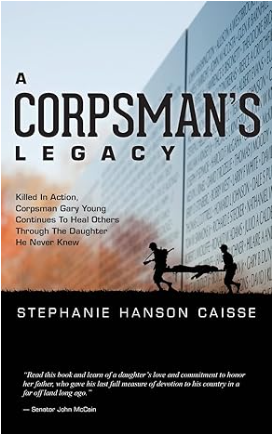The United States Marine Corps has a storied history filled with remarkable leaders who have shaped its path and legacy. Among these leaders, General Alfred M. Gray Jr. stands out as an iconic figure whose tenure as the 29th Commandant left an indelible mark on the Corps and its enduring principles.

General Gray’s career was defined by his visionary leadership and unwavering commitment to the Marine Corps’ core values of honor, courage, and commitment. Appointed as Commandant in 1987, he brought a forward-thinking approach to modernizing the Corps during a time of significant geopolitical change. His tenure saw the end of the Cold War and the beginning of new global challenges, and Gray was instrumental in ensuring the Marine Corps was ready to meet these demands.
One of General Gray’s most notable contributions was his focus on force design and tactical innovation. He championed the concept of maneuver warfare, emphasizing flexibility, speed, and the ability to adapt to evolving battlefield conditions. This approach was not just theoretical; it was put into practice with the restructuring of Marine units and the development of new doctrines that have continued to influence Marine Corps operations to this day.
General Gray understood that the strength of the Marine Corps lies in its people. He was a staunch advocate for enhancing professional military education and ensuring that Marines of all ranks had access to the resources needed to develop their leadership skills and strategic thinking. His emphasis on education led to the establishment of the Marine Corps University, a lasting legacy that continues to shape the minds of future Marine leaders.
General Alfred M. Gray Jr.’s journey began in 1950 when he enlisted in the Marine Corps. The closest recruiting office to his Point Pleasant Beach, NJ, home was in New York City, where the recruiting officer was then Major Louis Wilson. In a twist of fate, the same Louis Wilson, who became the 26th Commandant of the Marine Corps, promoted Al Gray to Brigadier General in 1976. General Wilson humorously quipped that he was promoting Gray to prove that some Marine recruits turned out to be okay.
Old-timers may recall that in the late 1970s, several senior Marine generals were southerners: General Wilson was from Mississippi; the Assistant Commandant, Robert Barrow, was from Louisiana, and John Miller, who was General Gray’s boss at the time, was from Texas. Sometime after the promotion ceremony, Brigadier General Gray was part of a panel at Quantico; he was asked to what he attributed his rise through the ranks from enlisted man all the way to general officer? Gray pondered the question for a few seconds and then replied, “Well, my career really took off when I realized that I was from Southern New Jersey.”
Gray’s sense of humor was one of his finest traits and he often used it to convey his message. When he was the Commanding General of the 2nd Marine Division, he once limped into a meeting with his staff and senior commanders. Everyone was concerned about the General’s apparent discomfort as he massaged his shin. Someone asked, “How did you hurt yourself, General?” Gray continued to massage his leg and finally answered, “I tripped over some of those weeds near the 2nd Marines’ barracks.” Needless to say, all the lawn mowers at Camp Lejeune were checked out immediately as subordinate commanders made sure their areas were shipshape. Gray’s use of humor to get his point across was much more effective than yelling and screaming would have been, and it maintained the existing high morale of the division.
The impact of General Gray’s leadership is felt across the Marine Corps and beyond. His focus on adaptability, education, and the well-being of Marines set a standard for future generations. His legacy is not just in the policies he implemented or the doctrines he developed, but in the enduring spirit of innovation and commitment that he instilled in the Corps.
Marines who served under General Gray often describe him as a leader who embodied the very essence of what it means to be a Marine. His ability to blend traditional Marine Corps values with innovative ideas earned him respect and admiration. One Marine recalled, “General Gray was a true warrior and leader. He had the vision to see beyond the present and the courage to implement changes that would shape our future.”
General Gray’s wisdom and insight continue to inspire Marines today. Some of his most memorable quotes include:
“Every Marine is, first and foremost, a rifleman. All other conditions are secondary.”
“I don’t run democracy. I train troops to defend democracy and I happen to be their surrogate father and mother as well as their commanding general.”
“There’s no such thing as a crowded battlefield. Battlefields are lonely places.”
General Alfred M. Gray Jr.’s contributions to the Marine Corps are a testament to his extraordinary leadership and unwavering dedication to the Marines he served. His legacy continues to inspire and guide the Corps, reminding us all of the enduring values that make the Marine Corps a formidable and respected force.

 Our legacy lives through the stories we tell. The Suck Life wants yours! Make Chesty proud!
Our legacy lives through the stories we tell. The Suck Life wants yours! Make Chesty proud!



 Semper Fidelis
Semper Fidelis




Someone ought to monitor and edit this site, as whack-job entries are a disgrace. SF
“There’s no such thing as a crowded battlefield. Battlefields are lonely places.”
Leadership by example, because sometimes you are the only one who can make THE difference.
i was a cpl. with 3/2 and i remember seeing gen. gray along with president Reagon’s speach after the Beirut barracks bombing in 1983. I’ll never forget that.
Wasn’t it General Gray who used to carry around a canteen cup all the time as Commandant? And talk without ceasing that the Marine Corps existed to fight?
(Maybe that’s all legend, but that’s part of the stories I heard back in the early 90s when NCOs would reminisce about the days when Gray led the Corps.)